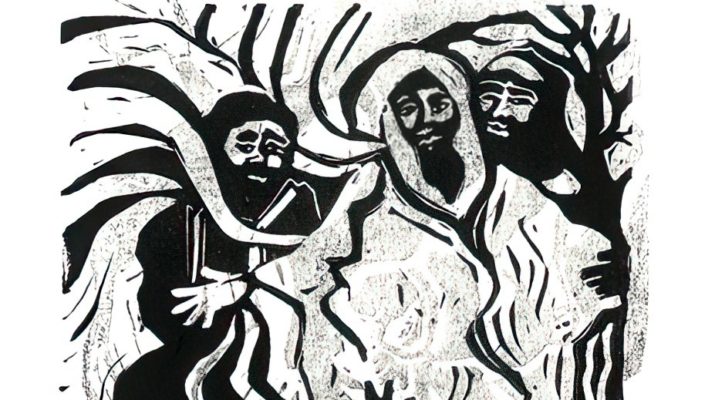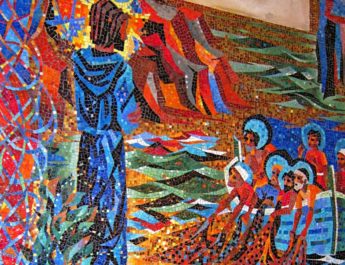Matthew 5:17
Narrative Lectionary 105
17 “Do not thinkA that I have comeB to abolishC
A “think” = nomizo. 15x in NT. From nomos (what is assigned – usage, law, custom, principle; used for the law in general or of God’s law; sometimes used to refer to the first five books of the Bible or the entire Old Testament; also used to refer to theology or the practice and tradition of interpreting and implementing the law of God); from nemo (to parcel out, assign). This is to practice, think, consider, suppose, hold by custom. This is thinking that something applies given precedent and practice – to do by law.
B “come” = erchomai. This is to come, go.
C “abolish” = kataluo. 17x in NT. From kata (down, against, throughout, among) + luo (to loose, release, untie; figuratively, to break, destroy, or annul; releasing what had been withheld). Literally, this means thoroughly loosening. It can mean unharnessing or unyoking animals and so to lodge somewhere for a night. It can also mean to disintegrate or demolish in a literal or figurative sense. So, it can be destroy, overthrow, abolish, or tear down.
the LawD or the Prophets;E I have come not to abolish but to fulfill.F
D “Law” = nomos. Related to “think” in v17. See note A above.
E “Prophets” = prophetes. From pro (before, in front of, earlier than) + phemi (to declare, say, use contrasts in speaking to shed light on one point of view); {from phao (to shine) or phaino (to bring light, cause to appear, shine, become visible or clear)}. This is a prophet or poet – one who speaks with inspiration from God.
F “fulfill” = pleroo. From pleres (to be full, complete, abounding in, occupied with). This is to fill, make full or complete. Properly, this is filling something up to the maximum extent that it can be filled – an appropriate amount for its individual capacity. So, this is used figuratively for furnish, influence, satisfy, finish, preach, perfect, and fulfill.
Image credit: “Transfiguration” by Cara B. Hochhalter, 2019.




